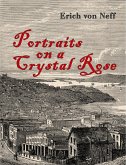Josie Fanon was at her husband Frantz Fanon's side from 1949 until his death in 1961. She is the onl person who knew him unreservedly.
Josie Fanon committed suicide on January 10, 1989 in El Biar, Algiers. She is buried in El Kettar Cemetery in Algers. Born Marie-Joseph Dublé in Lyon, France, she was 58 years old.
Josie Fanon committed suicide on January 10, 1989 in El Biar, Algiers. She is buried in El Kettar Cemetery in Algers. Born Marie-Joseph Dublé in Lyon, France, she was 58 years old.
Dieser Download kann aus rechtlichen Gründen nur mit Rechnungsadresse in A, B, CY, CZ, D, DK, EW, E, FIN, F, GR, H, IRL, I, LT, L, LR, M, NL, PL, P, R, S, SLO, SK ausgeliefert werden.









